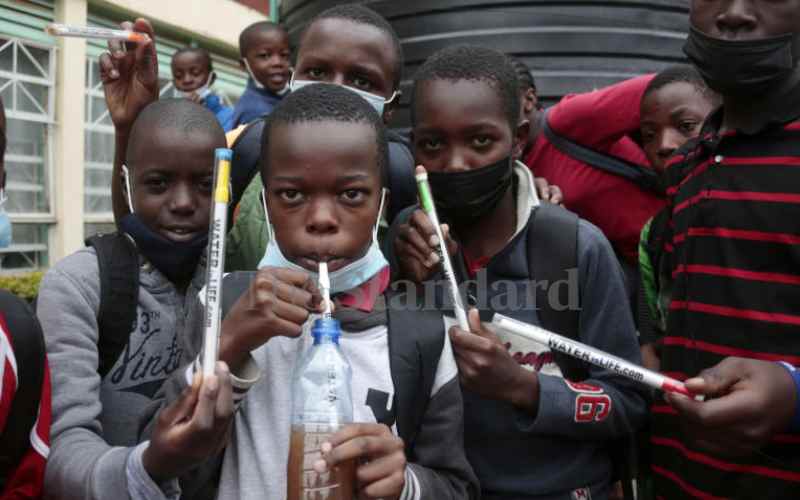×
The Standard e-Paper
Home To Bold Columnists

Samuel Luyayi a Class Six pupil drinks water using a purifying straw at Jamhuri Primary School along Ngong Road. [Boniface Okendo, Standard]
Imagine dipping a straw into a pond of stagnant dirty water and watch the brownness ‘magically’ turns into clear drinkable water.